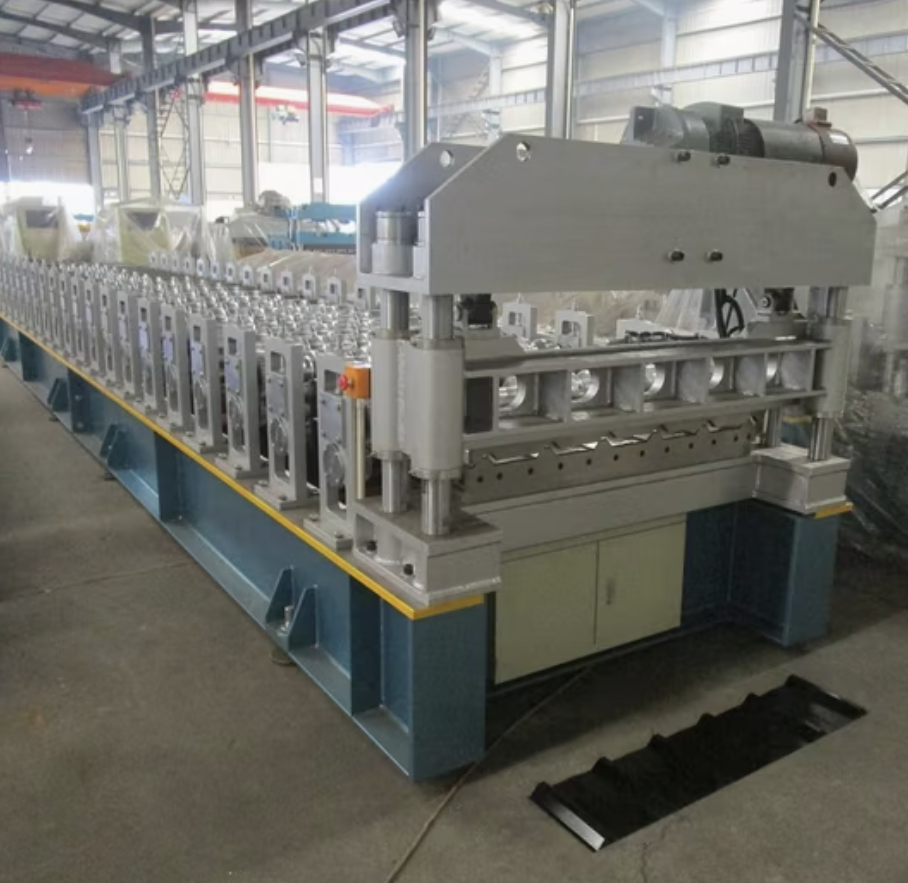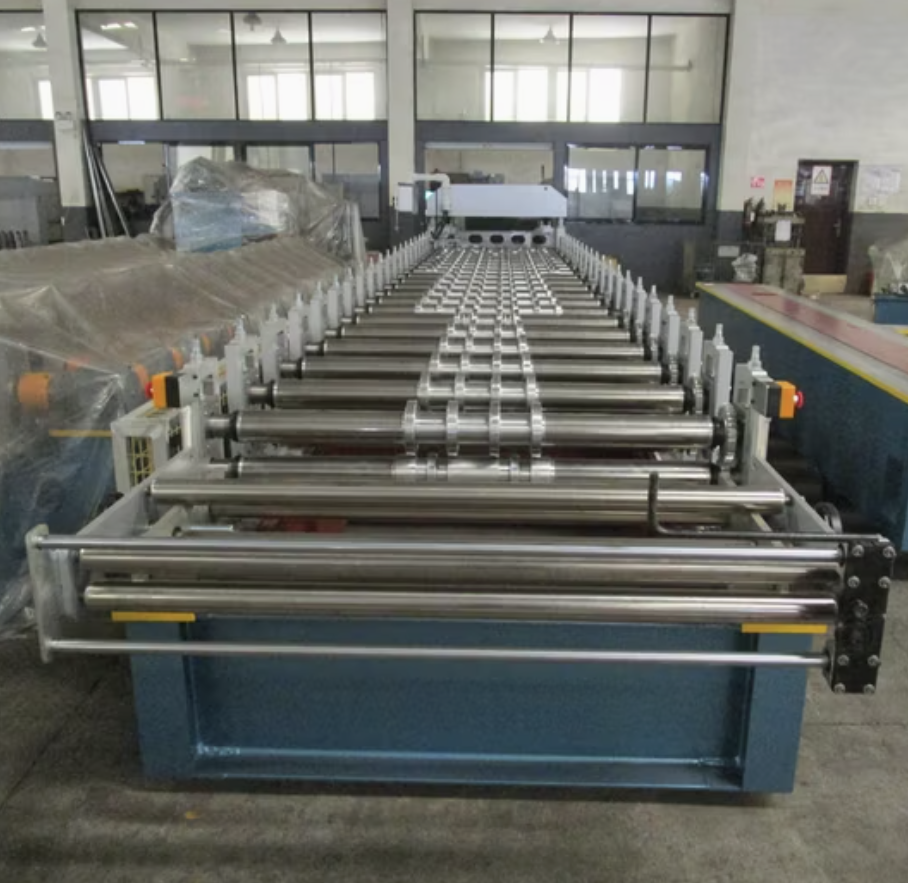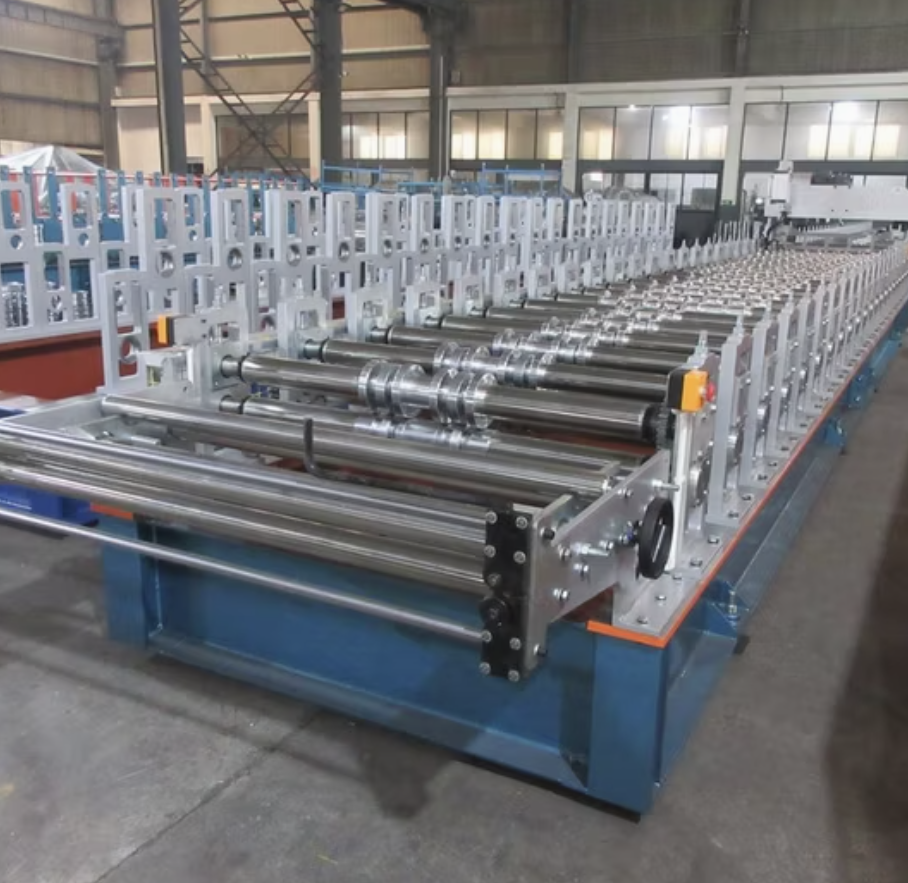To express an interest in this machine please submit the form below.

Not Sure What Machine You Need?
Select Your Profile, We'll Match It
Choose your desired profile drawing, and let Machine Matcher connect you with the best roll forming machine tailored to your needs.
Browse Profiles



A Metal Roof Roll Forming Machine is specialized equipment used to manufacture metal roofing panels with high precision, speed, and consistency. Metal roofs are a popular choice for residential, commercial, and industrial buildings due to their durability, weather resistance, and energy efficiency. These machines can create a range of profiles for various metal roofing systems, such as standing seam, corrugated, and ribbed panels, depending on the configuration.
A Metal Roof Roll Forming Machine takes a metal coil and feeds it through a series of rollers, which gradually shape the metal into the desired roofing profile. The machine can work with various materials, including galvanized steel, aluminum, copper, and zinc. The configuration can vary based on the profile's specifications and the type of roof panel required.
This roll forming machine is designed for high productivity, allowing manufacturers to create large quantities of roofing panels in a short time. It is equipped with automated features for cutting, punching, and stacking, depending on the complexity of the design. A programmable logic controller (PLC) system controls the machine, allowing operators to adjust settings easily and monitor production processes.
A: Metal Roof Roll Forming Machines can produce various profiles, including standing seam, corrugated, and ribbed roofing panels. The type of profile depends on the machine's configuration and roller design.
A: Yes, it can process a variety of materials, such as galvanized steel, aluminum, copper, and zinc. The material thickness typically ranges from 0.3mm to 1.5mm, but the machine’s specific capacity should be verified with the manufacturer.
A: Machine speed depends on the complexity of the roofing profile, material type, and thickness. Higher-speed models may also have servo motors and advanced PLC systems to support faster production rates.
A: The PLC control system simplifies machine operation by allowing users to program settings for different profiles, adjust speed, monitor production, and troubleshoot issues quickly. It improves efficiency and accuracy, reducing the need for manual intervention.
A: Yes, regular maintenance is crucial to ensure optimal performance. Routine checks on the roller condition, lubrication, hydraulic systems, and the PLC controls are essential to prevent wear and ensure longevity.
A: Key safety features include safety guards around moving parts, emergency stop buttons, and enclosures to protect operators from potential hazards.
A: Most manufacturers offer custom roller designs tailored to specific profile requirements. You can work with the supplier to provide your profile specifications, ensuring the machine is set up for your unique production needs.
A: Yes, many Metal Roof Roll Forming Machines come with remote PLC control options that allow for monitoring and adjustments from a distance, enhancing flexibility and operational safety.
Copyright 2026 © Machine Matcher.